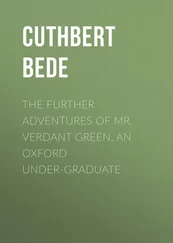I was thirty-nine: fourteen years of penal settlement, fifty-three months of solitary confinement, counting the Sante, the Conciergerie and Beaulieu as well as the prison on the island, the Réciusion. It was hard to put a label on me. I wasn't a poor bastard only capable of working with a pick or a shovel or an ax; nor did I have a real trade that would let me earn a decent living anywhere in the world, as a mechanic or an electrician, say. On the other hand, I couldn't take on important responsibilities; I hadn't enough education for that. While you're in school you should always learn a good manual trade; then if school goes wrong, you can always look after yourself in life. It wasn't that you felt better than a street sweeper if you had a certain amount of education- I had never despised any man except screws and pigs-but that, without it, you couldn't do justice to your true self. You were stymied-you felt you might have been happy, but that you wouldn't be, after all. I had both too much education and not enough. Hell, that was hardly the brightest outlook in the world.
And it was true that I had to take my revenge, too: it was true I could not possibly forgive the people who had done me and my family so much harm. Calm down, Papi, calm down. You've got plenty of time. You must gradually learn to trust in the future. You've sworn to go straight in this country, but here you are, already hustling, forgetting your promise.
I couldn't help going to the doorway and gazing for a long while at the stars and the moon, and listening to the countless noises coming from the mysterious bush that surrounded the village with a wall as dark as the moon was brilliant.
And then I slept, rocking gently in my hammock, happy to the core in the knowledge that I was free, free, free, and _master of my fate_.
At about ten the next morning I went to see the Lebanese. "So I go to El Callao or Ciudad BolIvar, to the addresses you've given me, and they pay me your bills of exchange?"
"That's right: you can go off with an easy mind."
"But what if they kill you too?"
"It doesn't matter, as far as you're concerned. You will be paid whatever happens. You're going to El Callao?"
"Yes."
"What part of France are you from?"
"Around Avignon, not far from Marseille."
"Why, I've got a friend from Marseille, but he lives a great way off. Alexandre Guigue is his name."
"Well, what do you know! He's a close friend of mine."
"Of mine, too. I'm glad you know him."
"Where does he live, and how can I get there?"
"He's at Boa Vista. A very long and complicated journey."
"What does he do there?"
"He's a barber. Easy to find him-you just ask for the French barber-dentist."
"So he's a dentist too?"
I couldn't help laughing, because I knew Alexandre Guigue very well: an extraordinary guy. He was sent out the same time as me, in 1933; we made the crossing together, and he had all the time in the world to tell me every last detail of his job.
One Saturday night in 1929 or 1930, Alexandre and a friend climbed quietly down from the ceiling of Lisbon 's biggest jewelry shop. They had broken into a dentist's office on the next floor up. To memorize the layout of the building, to be sure the dentist went away every weekend with his family and make impressions of the lock of the front door and the surgery, they had had to go there several times and have their teeth filled.
"Very good work he did, too," Alexandre told me, "seeing the fillings are still there. In two nights we had all the time we needed to shift the jewels and open two safes and a little steel cabinet, doing it neatly and without any noise. The dentist must have been fantastic at describing people, because as we were on the platform leaving Lisbon the pigs jumped on us without any hesitation at all. The Portuguese court sent us down for ten and twelve years. So there we were, a little while later, at their prison in Angola, down under the Belgian and French Congo. No problem about escaping: our friends came to get us in a taxi. Like an idiot I went to Brazzaville: my buddy, he chose Leopoldviile. A few months later I was picked up by the French police. The French wouldn't give me back to the Portuguese: they sent me back to France and there I copped a twenty-year stretch instead of the ten they'd given me in Portugal."
He made a break from Guiana. I'd heard that he had passed through Georgetown, and that he'd gone to Brazil through the bush, riding on an ox.
What if I went to see him? Yes: I'd go to Boa Vista. That was a brilliant idea!
I set off with two men. They said they knew how to get to Brazil, and they were to help me carry the food and bedding. For ten days and more we wandered about the bush without even managing to reach Santa Helena, the last mining village before the Brazilian frontier, and after a fortnight we found ourselves at Aminos, a gold mine almost on the edge of British Guiana. With the help of some Indians we reached the Cuyuni River, and that led us to a little Venezuelan village called Castillejo. There I bought machetes and files as a present for the Indians, and I left my so-called guides. I had to control myself so as not to smash their faces in, because in fact they no more knew those parts than I did.
In the end I found a man in the village who really did know the country and who agreed to guide me. Four or five days later I reached El Callao. Exhausted, worn out, thin as a lath, I knocked on Maria's door at nightfall.
"He's here! He's here!" shrieked Esmeraida at the top of her voice.
"Who?" asked Maria from another room. "And why do you shout so?"
All stirred up by finding this sweetness again after the weeks I had just been through, I caught hold of Esmeraida and put my hand over her mouth to keep her from answering.
"Why all this noise about a visitor?" asked Maria, coming in. Then with a cry of joy, of love, of hope fulfilled, she threw herself into my arms.
When I had embraced Picolino and kissed Maria's other sister-José was away-I lay there a long, long while beside Maria. She kept asking me the same questions; she couldn't believe I had come straight to her house without stopping at Big Charlot's or at any of the village cafés.
"You're going to stay a little while in El Callao, aren't you?"
"Yes. I'll fix things so I stay for some time."
"You must take care of yourself and put on weight; I'll cook such dishes for you, sweetheart. When you go, even if it wounds my heart forever-not that I blame you in any way, since you warned me-when you go, I want you to be strong, so that you can avoid the snares of Caracas as well as you can."
El Callao, Uasipata, Upata, Tumeremo: little villages with names strange for a European, tiny points on the map of a country three times the size of France, lost at the back of beyond, where the word progress has no meaning and where men and women, young and old, live as people lived in Europe at the beginning of the century, overflowing with genuine passions, generosity, joy in life and kindness. Almost all the men who were more than forty had had to bear the most terrible of all dictatorships, the rule of Gomez. They were hunted down and beaten to death for nothing: any man in authority could flog them with a bull's pizzle. When they were between fifteen and twenty in the years 1925 to 1935, all of them had been hunted like animals by the army's recruiting agents and dragged off to the barracks. Those were the days when a pretty girl might be picked out and kidnapped by an important official and thrown into the street when he was tired of her; and if her family raised a finger to help her they were wiped out.
Now and then, to be sure, there were uprisings, suicidal revolts by men who were determined to have their revenge even if they died for it. But the army was always there at once, and those who escaped with their lives were so tortured they were crippled for the rest of their days.
Читать дальше
Конец ознакомительного отрывка
Купить книгу











